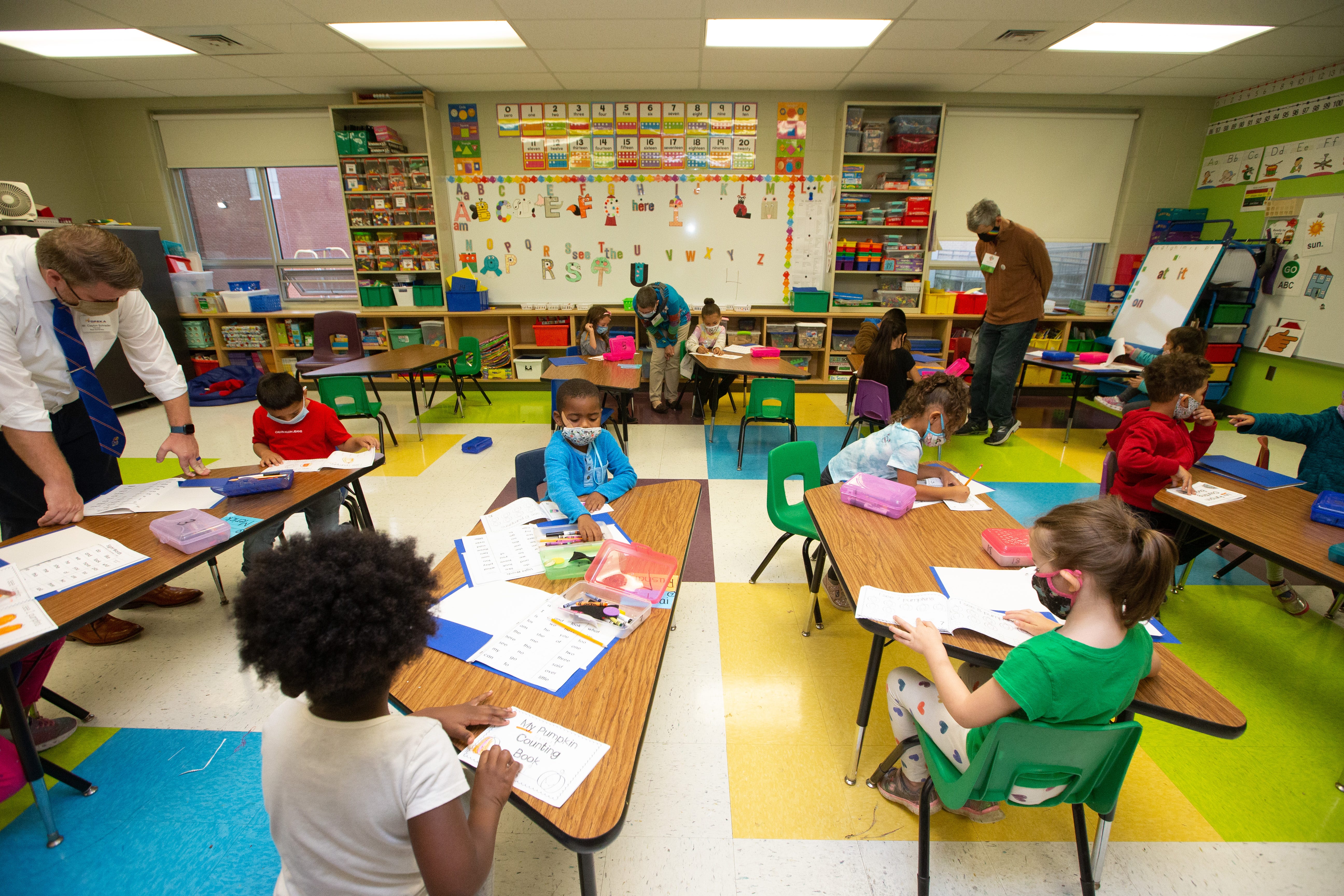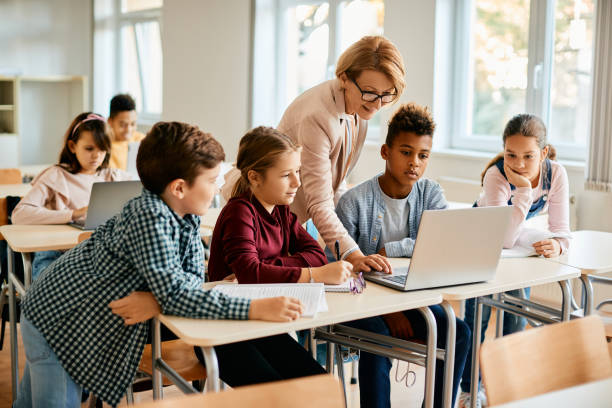Achieve Academic Success with Primary Science Tuition Singapore
Achieve Academic Success with Primary Science Tuition Singapore
Blog Article
Discovering the Various Mentor Strategies in Primary Science Education Today
Inquiry-based knowing, hands-on experiments, and the integration of technology are redefining how teachers involve young minds. Additionally, collaborative strategies and separated instruction are being employed to cater to the varied needs of trainees, enhancing both involvement and understanding.
Inquiry-Based Discovering
Inquiry-Based Knowing (IBL) is a pedagogical approach that motivates students to discover scientific principles via doubting, examination, and hands-on experimentation. This method emphasizes the role of pupils as active individuals in their discovering, advertising essential thinking and analytic abilities. By involving with real-world concerns, students end up being motivated and curious, which boosts their understanding of scientific principles.
In IBL, instructors work as facilitators, directing trainees as they navigate their queries instead of supplying information straight. This student-centered approach enables distinction, accommodating various learning speeds and styles. Students develop skills in formulating theories, creating experiments, and examining data, which are critical for clinical literacy.
In addition, IBL promotes partnership among pupils, urging them to share searchings for and concepts. This collective inquiry advertises social skills and a sense of area within the classroom. The procedure of query encourages resilience, as pupils discover to embrace failing as a stepping stone towards understanding.
Hands-On Experiments
Hands-on experiments are an essential part of efficient scientific research education, complementing the concepts of inquiry-based understanding. These experiments allow pupils to involve directly with scientific principles, fostering a deeper understanding through experiential learning. By controling products and observing end results, young learners can comprehend abstract theories in substantial means.
Such tasks advertise vital thinking and analytic abilities, as students assume end results, conduct experiments, and evaluate results. This process motivates them to ask concerns, fine-tune their understanding, and create a clinical way of thinking. Additionally, hands-on experiments can be tailored to diverse learning designs, guaranteeing that all trainees have the opportunity to engage meaningfully with the content.
Moreover, hands-on experiments usually encourage collaboration amongst peers, promoting synergy and communication skills. Functioning in groups enables pupils to share ideas, talk about searchings for, and discover from each other, which improves their general educational experience.
Integrating hands-on experiments into the primary science educational program not only improves the learning environment but likewise grows a lifelong rate of interest in scientific research. By proactively taking part in their education, trainees are most likely to create an interest for clinical query that extends past the classroom.

Technology Assimilation
Incorporating technology right into main science education and learning has actually ended up being progressively necessary in fostering student engagement and improving discovering outcomes. The use of electronic tools, such as interactive simulations, virtual laboratories, and instructional software application, supplies trainees with opportunities to discover clinical concepts in ingenious methods. These sources facilitate a deeper understanding of intricate subjects by enabling learners to visualize and adjust variables that would be impractical in a traditional classroom setup.
In addition, modern technology assimilation urges customized discovering experiences. Pupils can progress at their own pace, reviewing tough principles through multimedia resources, which cater to various discovering styles. This adaptability not just supports private growth yet likewise cultivates a sense of autonomy in learners.
Furthermore, modern technology acts as a bridge to real-world science, connecting trainees with existing research study and expert contributions. Access to online databases and scientific journals More hints widens pupils' viewpoints on scientific inquiry and cultivates critical assuming skills.
Collaborative Understanding
Collective learning plays an essential duty in key science education and learning by fostering synergy and interaction skills amongst trainees. This strategy encourages students to interact, share expertise, and participate in analytic, which improves their understanding of clinical concepts. By joining team tasks, pupils find out to verbalize their ideas, listen to diverse point of views, and discuss options, all of which are crucial skills in both scholastic and real-world contexts.

Study shows that collective discovering can lead to enhanced motivation and interaction in science subjects, as students locate pleasure in common experiences (primary science tuition Singapore). Additionally, this strategy prepares students for future joint ventures, furnishing them with the abilities essential for effective team effort in higher education and learning and professional settings. Inevitably, embracing joint discovering in primary scientific research education can dramatically enhance the knowing experience and promote a deeper understanding of clinical inquiry
Separated Instruction

Set apart direction can materialize in numerous methods, such as differing the material, procedures, or products Source of discovering. Teachers may utilize tiered assignments that offer differing degrees of intricacy, allowing students to work at their particular preparedness degrees. Furthermore, adaptable organizing techniques can assist in cooperation among students with different capabilities, promoting peer discovering.
Assessment plays an important function in this technique, as it notifies guideline and assists instructors recognize each pupil's unique requirements. Formative analyses, such as monitorings and quizzes, can direct educators in changing their methods to improve discovering end results. primary science tuition Singapore. Eventually, by applying set apart guideline in main scientific research education and learning, instructors can cultivate a more reliable and equitable learning environment, equipping all students to reach their complete capacity in recognizing clinical phenomena
Final Thought
In summary, the diverse mentor strategies in primary science education, including inquiry-based knowing, hands-on experiments, technology combination, collective understanding, and separated direction, collectively add to an extra reliable learning atmosphere. These approaches promote essential reasoning, analytical abilities, and a deeper understanding of clinical ideas. By executing these approaches, teachers can create interesting and encouraging classrooms that resolve the diverse requirements of trainees, eventually promoting a lifelong passion in scientific research and enhancing scholastic achievement.
Inquiry-Based Learning (IBL) is an instructional strategy that motivates trainees to discover scientific ideas with doubting, investigation, and hands-on testing.Joint knowing plays a vital duty in main scientific research education by cultivating teamwork and interaction skills amongst trainees.Study shows that collective discovering can lead to enhanced inspiration and interaction in scientific research topics, as trainees discover pleasure in common experiences.In promoting additional reading a comprehensive knowing setting, separated instruction emerges as an essential method to fit the diverse demands and capabilities of pupils in key scientific research education and learning. Eventually, by carrying out separated direction in main science education, instructors can cultivate a much more fair and efficient understanding environment, equipping all trainees to reach their complete capacity in comprehending clinical phenomena.
Report this page